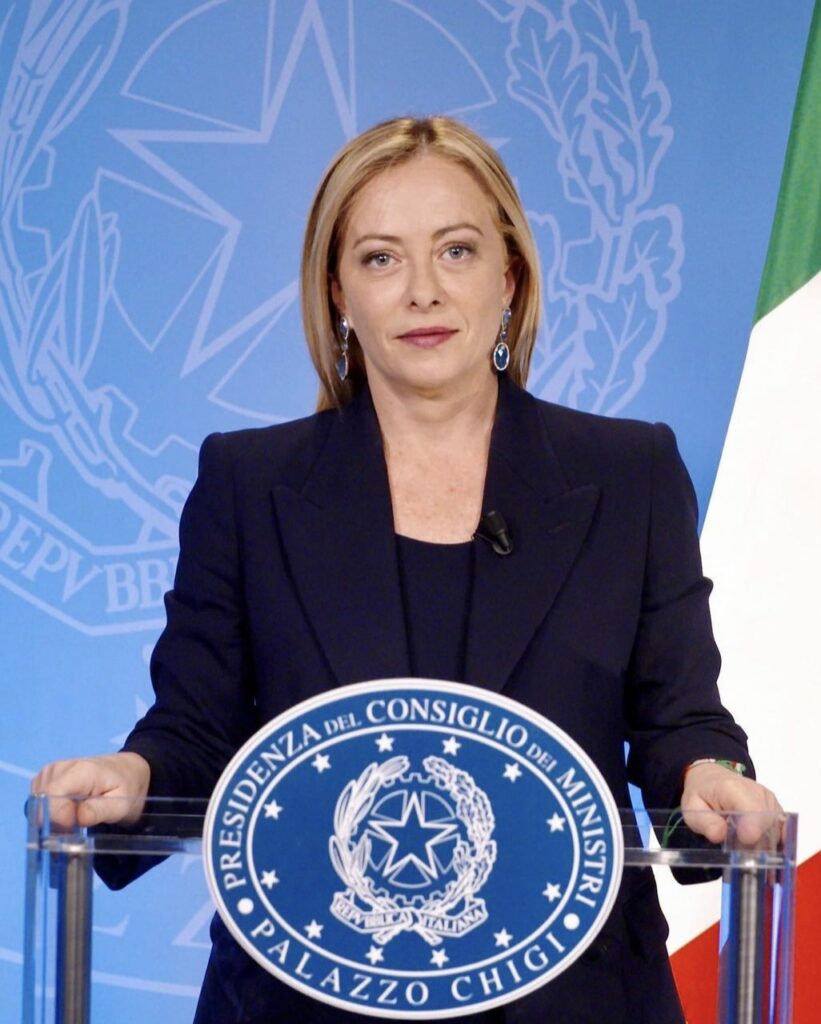…and Benito Mussolini Is Still Dead
Mirabile dictu: Prime Minister Meloni’s center-right coalition is holding — thus far. The Italian parliament’s approval of Ms. Meloni’s annual budget without any political turbulence is the latest signal that she is governing with an adroitness that belies all those pre-election jitters about a fascist revival.
There have been no pilgrimages to Predappio. And to paraphrase a tag line from the original Saturday Night Live: Benito Mussolini is still dead.

Recently, Ms. Meloni explained how one of the precursors to her Fratelli d’Italia party — the Movimento Sociale Italiano — was a necessary component in the evolution of the Italian Republic. In other words, the new polity that emerged from the ashes of World War II needed to honor the entire political spectrum.
Nevertheless, some liberal critics continue to demonize Italy’s first female prime minister. In the Financial Times last week, Simon Kuper, comparing Ms. Meloni’s prospects to Prime Minister Sunak’s in Britain, called his strategy “making nice with Europe, ideally without upsetting the arsonists.” He contends Ms. Meloni, “raised in the arsonist tradition, is attempting something similar.”
Yet Ms. Meloni is no arsonist — she has neither advocated nor condoned political violence of any sort. And the prime minister’s governance appears to have defanged many of the naysayers who warned of a fascist revival upon her accession to power.
Hostile rhetoric may be the least of Ms. Meloni’s problems in 2023, though. According to statistics issued by the Interior ministry — and reported in Euronews — migration to Italy jumped by more than 50 percent since Meloni took office.
Despite the Premier’s naval blockade policy, this increase was even more striking in the early days of 2023. The new year saw 3,709 migrants arriving from Africa — compared to only 378 during the same period last year.
This 881-percent upsurge threatens to unravel Ms. Meloni’s entire migration policy. Yet a more troubling development may be brewing within her government.
Though Deputy Prime Minister Matteo Salvini is firmly committed to the Ponte sullo Stretto project — the bridge linking Sicily to the Mainland — his recent pronouncements on regional autonomy are inimical to the best interests of southern Italy, the Mezzogiorno — and run contrary to Ms. Meloni’s ideological ethos.
Mr. Salvini began his political career as an adherent of Umberto Bossi’s Lega Nord, a secessionist and anti-southern political party. In his youthful ignorance, the early Matteo even voiced crude stereotypes of southerners.
A more mature and chastened Mr. Salvini reconstituted the Lega into a nationalist party — eventually forging an alliance of like minds with Ms. Meloni’s patriotic movement. Or so the Prime Minister thought.
While addressing a recent convocation of the Lega, Mr. Salvini reiterated the party’s 30-year commitment to federalismo — a code word for Bossi’s original bifurcation of the Magic Boot and the designation of the Eternal City as Roma Ladrona (‘Robber Rome’).
Perhaps the Deputy Prime Minister was posturing. Yet one cannot support presidenzialismo — which he did in the selfsame gathering — and then undermine national unity by calling for unbridled regional autonomy.
Thankfully, Foreign Minister Antonio Tajani rebutted Mr. Salvini’s salvo: “Italy must not be divided.” And any national reform “must not penalize the south.”
And as elder statesman Gianfranco Fini explained, a meaningful and equitable reform can be achieved “est modus in rebus” — with a middle ground in all things — adding that “haste makes waste.” Absent a compensation fund (for the Mezzogiorno), “we would jeopardize national unity,” Fini added.
Economic concerns may also place Giorgia Meloni’s government in jeopardy. While the Magic Boot’s economic growth continued in the third quarter of 2022 — registering a 0.5 percent boost from the previous quarter, according to the National Institute of Statistics — that anemic pace of growth is predicted to continue, at 0.4 percent, through 2023.
Even so, during Ms. Meloni’s brief tenure, the Italian economy has grown faster than the economies of Germany, France and Spain. And while inflation has abated throughout the European Union — and supply-chain problems have eased — the price of gasoline at the pump continues to increase.
The Meloni government has intervened to stem what appears to be price gouging — rolling back VAT and excise taxes. But the public perceives such measures as both tardy and insufficient.
Like Captain James Tiberius Kirk of Star Trek, Ms. Meloni envisions her stewardship to be a five-year mission.
Ultimately, the fate of Ms. Meloni’s own enterprise will rise or fall on the strength of her success in governance — and the ability to navigate any number of socio-economic and political no-win scenarios. -RAI




Recent Comments